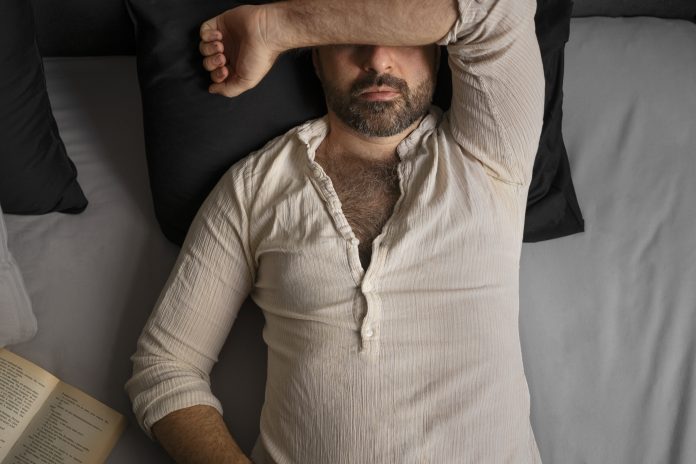For a 23-year-old fitness trainer, Dilan Patel in the U.K., life was going normal until he began experiencing a strange, recurring symptom that kept him up two to three times a night. For nearly two years, Patel ignored night sweats and several other warning signs. However, when they became impossible to overlook, he was faced with a life-altering diagnosis: Hodgkin lymphoma, a rare type of blood cancer.
Hodgkin Lymphoma is a cancer that affects the lymphatic system. Although a serious form of cancer, the tumors in the lymph nodes can be cured if diagnosed and treated early. However, most often signs such as night sweats can easily be mistaken for less serious issues.
“You won’t believe it… I was 25 years old, living my life like any other young adult – working hard, working out, hanging with friends, and trying to figure out my future. Life felt normal. I had no reason to think anything was wrong. But then something strange started happening,” Patel said in a TikTok video.
“I’d wake up in the middle of the night drenched in sweat. I mean SOAKED. My clothes, my bed – everything would be wet. It happened 2-3 times every single night. At first, I just thought, ‘Maybe I’m getting too hot under the covers?’ So I brushed it off,” he added.
Apart from night sweats, Patel experienced persistent itchy skin, which he brushed off as nothing more than dryness, and fatigue and lumps on his neck that he assumed were from intense gym workouts.
“Everything had an explanation – or so I thought,” Patel said. However, by the time Patel was diagnosed with stage 4B Hodgkin’s Lymphoma, he already had five tumors and the cancer had even spread to his lung.
“I couldn’t believe it. I’d spent so long brushing off my symptoms, convincing myself they weren’t a big deal. But my body had been screaming at me for almost 2 years,” Patel said.
The symptoms of Hodgkin lymphoma include painless, swollen lymph nodes in the neck, underarm, or groin, unexplained fever, drenching night sweats, weight loss over six months without a clear reason, persistent fatigue, and itchy skin, particularly after bathing or drinking alcohol.
“If there’s one thing I’ve learned from this experience, it’s to pay attention to your body. Those little signs and symptoms? They’re there for a reason. Don’t wait until it’s too late,” Patel added.


